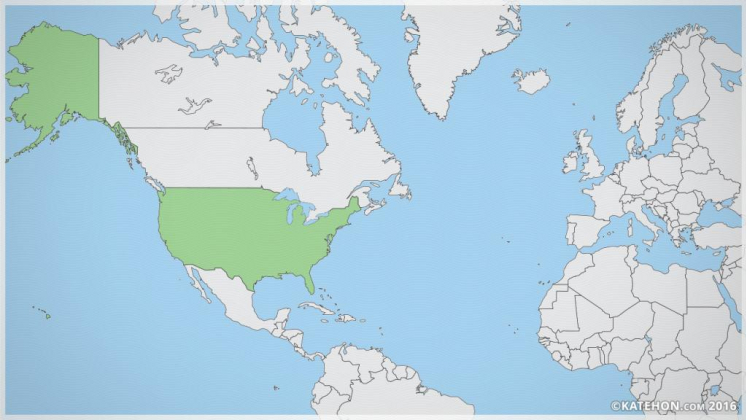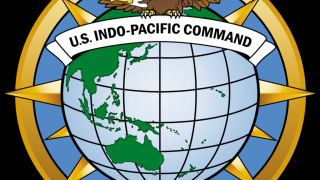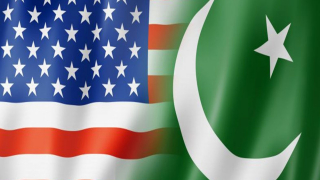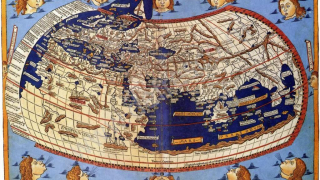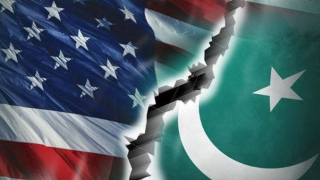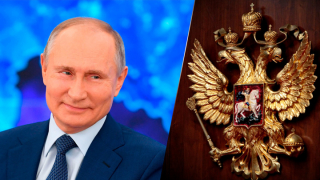2017 Forecast: US
Summary
The Clintonian Counter-Revolution against Trump will continue, albeit in different forms of varying and uncertain intensity, though one thing is for sure and it’s that there will be “deep state” tension between and within the US’ permanent military, intelligence, and diplomatic bureaucracies. More concretely, however, one can foresee that a slew of problems will expectedly unfold as President Trump follows through on his pledge to deport 2-3 million violent illegal immigrants but meets municipal and state resistance from the mayors and state legislatures which have promised to oppose him, possibly leading to a constitutional standoff which could have far-reaching implications for American domestic stability and US-Mexican relations.
The Clintonian Counter-Revolution
The author analyzed over the summer that there was tension in the “deep state” between the institutional supporters of Trump and Clinton, with his article “National Leadership Styles And The “Deep State”: Trump And Hillary” predicting that Trump would ‘clean out’ hostile elements if he won the Presidency and would consequently make his final judgement about important matters independent of these entities’ lobbying. Near the tail end of the election season, the FBI surprisingly reopened its investigation into Hillary’s private email server, which the author interpreted as having been done due to irresistible pressure from the patriotic rank-and-file agents who make up the majority of the Bureau. Although Director Comey eventually walked back on his accusatory inferences right before the election, that doesn’t change the fact of what he had previously done, nor his motivations for doing so. This further proves that there were “deep state” intrigues going on behind the scenes during the election, and which will be elaborated on shortly in the next analysis.
For now, however, it’s necessary to talk about some of the more public ways in which The Establishment is fighting back against Trump and trying to undo the electoral revolution that he led. The immediate post-victory aftermath was marked by riotous disturbances in several American cities, which the author analyzed in his article about how “The Witch’s Wrath Turns Into A Clintonian Counter-Revolution”. This piece elaborated on the inner-city unrest and linked it to Hillary Clinton and her “NGO” ally George Soros, both of whom have a personal interest on behalf of the forces which they represent to delegitimize Trump’s election. Apart from the riots which have since died down, the Clintonian Counter-Revolution also took the form of Jill Stein’s failed “recounts” in Wisconsin, Michigan, and Pennsylvania, which were wild schemes that were never intended to seriously overturn the results of the vote so much as raising questions about Trump’s legitimacy (which they totally failed to do).
The riots and “recounts” were just short-term reactions to Trump’s victory, although the former could recommence during or after his inauguration, while the more enduring manifestations of this stratagem are present in the political and media realms. About the first one, Trump is depending on the Republicans in Congress to solidly stand by him and use their governing majority in both chambers to pass his initiatives, though this is far but assured in practice because some of his own party members detest the President-elect while others are inclined to side with the Democrats (whether out of their own will or in advance of their pecuniary interests) in stopping his legislative agenda. Should it happen that Trump can’t pass most of his signature proposals because of Democrat-coopted Republican resistance, then he might just have to resort to the same practice which he and many of his base previously lambasted Obama for and issue a set of controversial Executive Orders. If he does this, then it might further erode his legitimacy and play into the hands of the Clintonian Counter-Revolution.
By itself, many of the masses wouldn’t automatically conflate Trump’s prospective Executive Order actions and other sorts of behavior with an “illegitimate” presidency, hence why it’s necessary for The Establishment to wage an incessant information warfare campaign on the minds of the population. Even so, a lot of people no longer believe the Mainstream Media, which is why legacy outlets and their backers are foraying into alternative and social media in order to push their agendas under the misleading veneer of falsely portraying them as “grassroots” and “independent” initiatives. The casual information consumer might not be able to tell the difference between the Mainstream Media’s “alternative” proxies and the real thing, so it’s possible that some individuals might be successfully deceived. Altogether, the triple components of the Clintonian Counter-Revolution – riots, Republican defections, and information/psychological warfare – feed off of one another despite being able to operate somewhat independently, and it’s forecasted that the next four to eight years will be characterized by a complex interplay between these factors aimed at producing serious difficulties meant to undermine Trump’s governing mandate.
“Deep State” Wars
Intimately connected to the Clintonian Counter-Revolution, the “deep state” wars are the shadowy way in which this stratagem will be applied. Trump said on many occasions that he wants to “drain the swamp”, which translates to removing neoconservative and globalist figures from government so that they don’t get in the way of his “America First” program. When it’s pragmatic to do so, Trump can be expected to work with and sometimes even employ a few of these individuals, but for the most part, he won’t tolerate anyone who maliciously opposes him (constructive and well-intentioned criticism is a different matter) and will probably take steps to neutralize the damage that they can do. This could be through either firing them, commencing corruption charges against them if there’s enough evidence and the move is warranted, or pigeonholing them in bureaucratic positions where they can’t do any harm to his agenda. It can’t be overstated just how important this behind-the-scenes struggle will be in determining the course of Trump’s Presidency, since it will directly affect whether or not he can even proceed with some of the more non-traditional aspects of his foreign policy platform such as pushing forward a New Détente with Russia in the New Cold War. This was touched upon in the author’s Sputnik article titled “Here’s What Trump’s Foreign Policy Will Look Like”, and it should be referenced by any reader who would like to know more about this particular set of forecasts.
Returning to the nature of “deep state” wars, however, it’s clear that they’re already being fought right now and have already spilled over into the public domain. The CIA’s partisan support of the Obama Administration’s narrative that “Russian hackers” and “propaganda” tipped the election in Trump’s favor provoked the President-elect to scathingly criticize the Agency on Twitter as the same group which once infamously lied about “Weapons of Mass Destruction” in Iraq. Moreover, it’s been reported that Trump has refused his regular intelligence briefings just like Nixon did, likely out of the concern that they’re misleading brainwashing sessions designed to influence his decision making. Therefore, it’s plain to see that Trump and the CIA will likely clash during the beginning of his Presidency, though he might be able to rein them back in line if he makes the right administrative changes such as hiring a trusted individual to lead the Agency and thoroughly reform it from within. There’s no timetable for how long this could take, let alone if it’s even functionally possible to the degree that would be necessary for Trump to adequately rule without unwanted “deep state” interference, so one shouldn’t get their hopes up too high about this occurring, though it’ll definitely be a central theme during at least the first half of Trump’s initial term even if it’s not publicly analyzed in the Mainstream Media.
Illegal Immigrant Insurgency
Trump’s ambitious promise to forcibly remove up to 2-3 million violent illegal immigrants is destined to create a major political crisis inside the US because of the refusal of relevant mayors and state legislatures to go along with the Command-In-Chief’s plan of action. Almost immediately after Trump made his announcement shortly following his electoral victory, the mayors of “sanctuary cities” such as Chicago, New York, and San Francisco –all Democrats and thus complicit in the Clintonian Counter-Revolution, it should be emphasized – said that they won’t cooperate and will do whatever is in their means to oppose this decision, with California’s state legislature even going as far as drawing draft laws ensuring the legal protection of illegal immigrants. In response, Trump vowed to cut off federal funding for their cities, but that doesn’t mean that he’s going to back down from his pledge of deporting the violent illegal immigrants which have invaded America. Depending on the level of resistance that federal agents encounter in carrying out the President’s decree, a real constitutional crisis might be in the cards.
To explain, some of the police forces which the local mayors command are equivalent in size, power, and efficiency to some national militaries, with the NYPD being the best example of this. Should Mayor de Blasio order the department to resist the federal agents tasked with carrying out Trump’s will, they could either rebel against him and mutiny or – even worse – listen to what he says and provoke a possible clash between the city and the federal government. There’s no use speculating on whether this will definitely occur or not, but it’s enough to put it on the table and analyze its possibility in general seeing as how it’s conceivably possible and not too far-fetched when one considers the hateful resistance that the Clintonian Counter-Revolution proxies have to the incoming Trump Administration. De Blasio is a diehard Cultural Marxist, while Chicago Mayor Rahm Emanuel is Obama’s former Chief of Staff and a loyal high-ranked member of the Democratic Establishment. As for the Democratic mayors in California and perhaps even a few of those in Texas, Florida, and other illegal immigrant-afflicted states which would be affected by the President’s measure, they too could be expected to resist the federal government however they can, though it might be more rhetorical and symbolic than substantial because they have nowhere near the resources that the NYPD and a few others have, provided that they can be utilized.
If an unresolved faceoff occurred between city and federal authorities over Trump’s order to deport the 2-3 million violent illegal immigrants in the country, then the only realistic way to resolve it would be for the Governor to order in the National Guard (whether in support of the federal government or the “rebellious” municipalities) and/or for the federal government to declare martial law in the afflicted area and have the President deploy the military. Again, there’s no telling if this would occur nor how far it would be carried if it indeed happened, as it’s possible that the ‘alphabet soup’ collection of federal agencies such as the FBI, DEA, ATF, ICE, and DHS could exert enough non-violent pressure on their municipal counterparts that they’ll get what they want unless there’s lethal resistance (and even then, it could likely be dealt with quickly enough that it doesn’t develop into a drawn-out crisis necessitating the National Guard or actual military’s intervention). Anyhow, the whole point in bringing this all up is to highlight the Pandora’s Box of constitutional issues which might be opened up depending on how intensely the Clintonian Counter-Revolution mayors and governors – and the municipal police forces and National Guards which they control – choose to oppose the President.
Even if their actions are technically illegal, the previously mentioned triad of riots, Republican legislative defections in Congress, and incessant information/psychological warfare could come together in prompting a shift in the masses’ perception and making it seem like Trump is “declaring civil war” on the country.
Amidst any potential constitutional crisis in the country brought about by the discussed scenario, it remains to be seen how Mexico will react. Nobody is suggesting that Mexico would “invade” the US to “protect its citizens”, but it might use “Human Rights” and “Responsibility to Protect” rhetoric (the latter inferred and not directly stated) to score diplomatic points against the US in Latin America and beyond. As for the violent illegal immigrants themselves, most of whom are Mexican but also hail from a variety of Hispanic countries in the hemisphere, they probably wouldn’t stage any sort of “insurgency” like the scenario title says (which refers to the illegal anti-constitutional insurgency that the Clintonian Counter-Revolution’s cohorts would wage by using this issue as a convenient excuse), but might exaggerate their “plight” on social media in order to gain international sympathy and propel the cycle of rhetorical Mexican statements which will foreseeably lead to a sharp deterioration in bilateral relations between the US and its southern neighbor. In the extremely unlikely event that some violent Mexican illegal immigrants take up arms and fight for the “Reconquista” of the Western US like some ultra-radical organizations want them to, then the instantaneous crackdown that this would provoke could heighten Mexican-American tensions and spark a fast-moving security dilemma between both sides.
Importantly, when discussing any prospective Mexican reaction to the examined chain of events, it’s necessary to consider what the influence of China over Mexico could be by that time. Both countries are peace-loving and independent states which make their own sovereign decisions (except in the cases when Washington successfully pressures Mexico City), and neither has any ill-intentions towards the US. Still, it can’t be excluded that Beijing might be interested in celebrating a certain degree of schadenfreude by encouraging Mexico to signal to its US-inhabiting illegal immigrant compatriots that it’s okay to melodramatically resist Trump’s enforcement of federal laws (though short of taking up arms, of course, which would be an independent decision by extremist individuals and groups). In a nutshell, it would be an ironic twist of fate if the illegal Mexican immigrants living in the US started creating the sort of trouble that the US encouraged the Tibetans, Uighur, Taiwanese, and Hong Kong residents to do against Beijing all across the past decades. The author isn’t asserting that China indeed has these plans, but just that it can’t at all be discounted that this paradigm could be at play in the Chinese-Mexican relationship (especially if it’s by then a strategic partnership) if the examined scenario ever unfolded. To conclusively return to the main point of this section, Trump’s noble efforts to rid the US of violent illegal immigrants might be the tripwire for unleashing a major constitutional crisis by the Clintonian Counter-Revolution cohorts and could at worst contribute to the rapid deterioration of US-Mexican relations.
Source: Katehon.com

